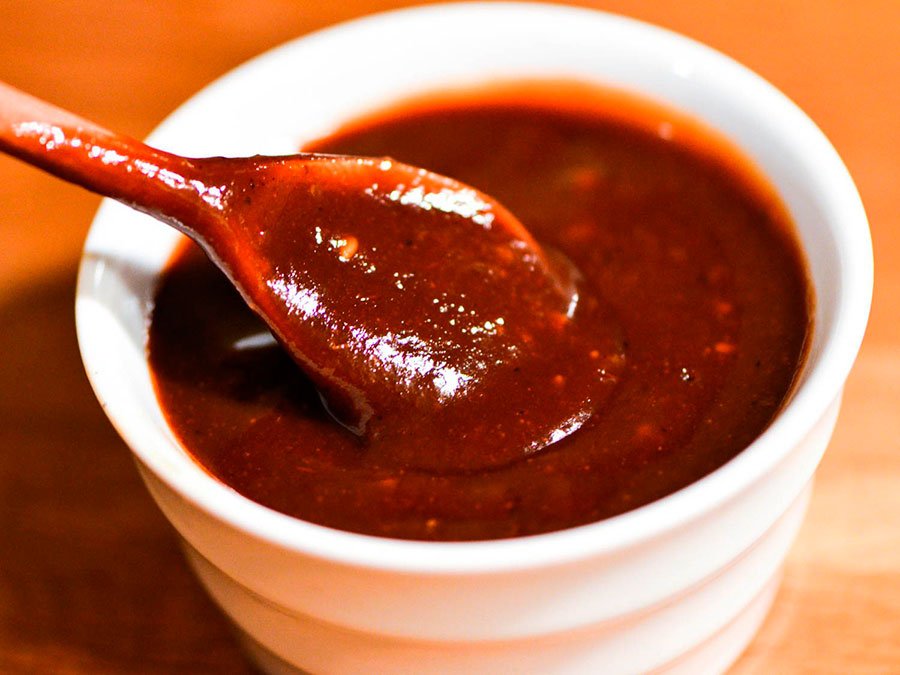
Korean BBQ sauce, known for its perfect balance of sweet, savory, and umami flavors, has become a staple in kitchens worldwide.
This versatile sauce enhances a wide range of dishes, from grilled meats to stir-fries, making it an essential condiment for any food lover. This comprehensive guide will explore the history, ingredients, and preparation methods for Korean BBQ sauce.
Whether you want to create an authentic Korean meal or elevate your dishes, this guide has everything you need.
Understanding Korean BBQ Sauce
What is Korean BBQ Sauce?
Korean BBQ sauce, or “bulgogi sauce,” is a rich, flavorful condiment made from a blend of soy sauce, sugar, garlic, ginger, sesame oil, and other seasonings. This sauce is a key component of Korean barbecue, where it’s used to marinate meats before grilling. The sauce’s complex flavor profile, which includes sweet, salty, spicy, and umami notes, makes it versatile enough to use in various dishes beyond just BBQ.
The Popularity of Korean BBQ
Korean BBQ has gained international acclaim for its unique flavors and interactive dining experience. Diners cook marinated meats on tabletop grills, often accompanied by a variety of side dishes known as “banchan.” The rise in popularity of Korean cuisine globally has led to increased interest in creating authentic Korean BBQ at home, making the right sauce essential.
Essential Ingredients
Core Components
- Soy Sauce: The base of the sauce, provides saltiness and umami.
- Sugar or Honey: Adds sweetness and helps caramelize the meat when grilled.
- Garlic: Essential for a deep, aromatic flavor.
- Ginger: Adds a fresh, spicy note.
- Sesame Oil: Provides a nutty flavor and richness.
- Rice Vinegar or Mirin: Adds a slight tanginess and balances the sweetness.
- Korean Pear or Apple: Often used to tenderize the meat and add natural sweetness.
Optional Additions
- Gochujang (Korean Chili Paste): Adds heat and depth.
- Green Onions: For a mild onion flavor.
- Sesame Seeds: Adds a crunchy texture and enhances the nutty flavor.
- Asian Pear: A traditional ingredient for its tenderizing properties and sweetness.
Making Korean BBQ Sauce
Classic Recipe
Ingredients:
- 1/2 cup soy sauce
- 1/4 cup sugar or honey
- 4 cloves garlic, minced
- 1 tablespoon ginger, grated
- 2 tablespoons sesame oil
- 2 tablespoons rice vinegar or mirin
- 1/2 Korean pear or apple, grated
- 2 tablespoons gochujang (optional)
- 2 green onions, finely chopped (optional)
- 1 tablespoon sesame seeds
Instructions:
- In a bowl, combine the soy sauce, sugar, garlic, ginger, sesame oil, and rice vinegar.
- Add the grated Korean pear or apple and mix well.
- If using, stir in the gochujang for heat.
- Mix in the green onions and sesame seeds.
- Taste and adjust seasoning as needed, adding more sugar for sweetness or soy sauce for saltiness.
- Let the sauce sit for at least 30 minutes to allow the flavors to meld.
Variations and Adjustments
- For a Spicier Sauce: Increase the amount of gochujang or add Korean red pepper flakes (gochugaru).
- For a Sweeter Sauce: Use more sugar or honey, or add a bit of fruit juice.
- For a Tangier Flavor: Add more rice vinegar or a splash of lemon juice.
Cooking with Korean BBQ Sauce
Grilling Techniques
Korean BBQ sauce is ideal for grilling meats like beef, pork, and chicken. Here’s how to use it:
- Marinate the Meat: Coat the meat with the sauce and let it marinate for at least 30 minutes, or overnight for a stronger flavor.
- Preheat the Grill: Heat the grill to medium-high heat.
- Grill the Meat: Cook the meat on the grill, basting it with more sauce as it cooks. This helps to caramelize the meat and adds depth of flavor.
Stir-Frying and Marinating
- Stir-frying: Use the sauce as a stir-fry base for vegetables and proteins like tofu or shrimp.
- Marinating: Marinate meats in the sauce before stir-frying or grilling for a quick and flavorful meal.
Using as a Dipping Sauce
Korean BBQ sauce also works great as a dipping sauce for dumplings, spring rolls, or vegetable platters. To use as a dip:
- Pour the sauce into a small bowl.
- Garnish with sesame seeds or chopped green onions for added flavor and presentation.
Health Benefits and Considerations
Nutritional Information
Korean BBQ sauce can be high in sodium and sugar, depending on the recipe. However, it’s also a good source of antioxidants from garlic and ginger, and healthy fats from sesame oil.
Healthier Alternatives
- Low-Sodium Soy Sauce: Reduces the sodium content.
- Natural Sweeteners: Use honey or agave instead of refined sugar.
- Additional Vegetables: Incorporate more vegetables into the dishes to balance the meal’s nutritional profile.
Serving Suggestions
Pairing with Different Dishes
Korean BBQ sauce complements a variety of dishes:
- Grilled Meats: Beef, pork, chicken, and seafood.
- Vegetables: Grilled or stir-fried vegetables.
- Noodles and Rice: Drizzle over noodles or mix into fried rice.
Side Dishes and Complements
Serve Korean BBQ dishes with traditional side dishes (banchan) like:
- Kimchi: Fermented cabbage with a spicy kick.
- Japchae: Stir-fried glass noodles with vegetables.
- Pickled Vegetables: Adds a tangy contrast to the rich flavors of the BBQ sauce.
Troubleshooting Common Issues
Balancing Flavors
- Too Salty: Add more sugar or a splash of water to dilute the saltiness.
- Too Sweet: Increase the amount of soy sauce or add a bit of rice vinegar.
- Too Spicy: Reduce the amount of gochujang or add more sugar to balance the heat.
Consistency Problems
- Too Thick: Thin the sauce with water or additional soy sauce.
- Too Thin: Simmer the sauce over low heat until it reaches the desired thickness.
Advanced Tips and Tricks
Experimenting with Flavors
- Add a Citrus Twist: Incorporate orange or lime zest for a fresh, zesty flavor.
- Use Different Sweeteners: Try using maple syrup or brown sugar for a different sweetness profile.
- Infuse with Herbs: Add fresh herbs like cilantro or basil for a unique twist.
Storing and Preserving Sauce
- Refrigeration: Store the sauce in an airtight container in the refrigerator for up to two weeks.
- Freezing: Freeze the sauce in ice cube trays for easy portioning and thawing.
Conclusion
Korean BBQ sauce is a versatile and delicious addition to any kitchen. Its complex blend of sweet, salty, and umami flavors makes it perfect for grilling, marinating, and dipping.
By following this guide, you can create your own homemade Korean BBQ sauce and experiment with different dishes and flavors. Whether you’re hosting a Korean BBQ party or just looking to spice up your meals, this sauce is sure to be a hit.
Enjoy exploring the world of Korean cuisine with your homemade Korean BBQ sauce from Whatgrills!
